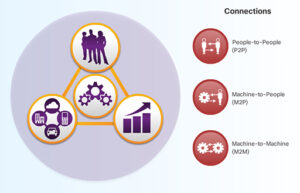The Power of Motivational Treatment in Achieving Personal Growth
In the vast landscape of therapeutic approaches, motivational treatment emerges as a dynamic force for change, offering individuals a pathway to self-discovery and empowerment. Grounded in principles of empathy, collaboration, and autonomy, this client-centered approach harnesses the innate capacity for change within individuals, guiding them toward meaningful transformation. In this comprehensive guide, we delve into the intricate nuances of motivational treatment, exploring its underlying principles, methodologies, diverse applications, and profound impact on personal growth and well-being. You can also read this The Psychological Landscape of Eating Disorders.
Understanding Motivational Treatment
At its essence, motivational treatment, also known as motivational interviewing (MI), embodies a philosophy of respect, empathy, and collaboration. Developed by psychologists William R. Miller and Stephen Rollnick in the 1980s, MI initially found application in the realm of addiction treatment but has since evolved to address a myriad of behavioral, emotional, and interpersonal challenges. Central to motivational treatment is the belief in individuals’ intrinsic motivation to change and the therapist’s role in fostering and amplifying that motivation.
Principles of Motivational Treatment
Empathy serves as the cornerstone of motivational treatment, as therapists strive to deeply understand clients’ experiences, perspectives, and emotions without judgment or bias. By cultivating a safe and non-judgmental therapeutic space, therapists create an atmosphere conducive to honest self-exploration and reflection. The collaboration underscores the therapeutic relationship in motivational treatment, with therapists and clients working together as equals in pursuit of shared goals. Rather than imposing solutions or directives, therapists empower clients to explore their values, aspirations, and barriers to change, fostering a sense of agency and ownership over the therapeutic process. Autonomy is paramount in motivational treatment, as individuals are encouraged to exercise their inherent capacity for self-determination and choice. Therapists respect clients’ autonomy by honoring their decisions, preferences, and pace of change, thereby facilitating a sense of empowerment and self-efficacy. Evocation recognizes that individuals possess within them the wisdom, strengths, and resources necessary for change. Therapists evoke clients’ innate potential through reflective listening, affirmations, and open-ended questions, guiding them towards self-discovery and realization of their aspirations.
Methodologies of Motivational Treatment
Reflective Listening involves therapists attentively listening to clients’ narratives, emotions, and concerns, and reflecting on their experiences with empathy and validation. By mirroring clients’ thoughts and feelings, therapists deepen the therapeutic connection and foster a deeper understanding of clients’ motivations and ambivalence towards change. Open-ended questions invite clients to explore their thoughts, feelings, and experiences more deeply, encouraging self-reflection and insight. Unlike closed-ended questions that elicit brief or binary responses, open-ended questions promote expansive dialogue, facilitating a richer exploration of clients’ values, goals, and aspirations. Affirmations acknowledge and reinforce clients’ strengths, accomplishments, and positive attributes, bolstering their confidence and self-belief. By highlighting past successes and inherent capabilities, therapists instill hope and optimism, inspiring clients to embrace change and pursue their aspirations with renewed vigor. Summarization involves synthesizing and summarizing key themes, insights, and action points discussed throughout the therapeutic session. By offering a cohesive recap of the client’s narrative and progress, therapists reinforce the commitment to change, foster continuity in the therapeutic process, and highlight areas for further exploration and growth.
Applications of Motivational Treatment
Addiction Recovery
Motivational treatment has garnered significant acclaim in the realm of addiction recovery, serving as a cornerstone of evidence-based interventions such as Motivational Enhancement Therapy (MET) and Brief Interventions (BI). By nurturing intrinsic motivation, self-efficacy, and readiness for change, motivational treatment empowers individuals to overcome substance use disorders and embark on the path to recovery.
Weight Management
In the context of weight management and lifestyle modification, motivational treatment offers a holistic approach to addressing the complex interplay of behavioral, emotional, and environmental factors contributing to weight-related challenges. By exploring clients’ motivations, values, and barriers to change, therapists facilitate sustainable lifestyle modifications, dietary improvements, and physical activity adherence, fostering long-term health and well-being.
Mental Health
Motivational treatment complements traditional psychotherapeutic modalities in the treatment of various mental health concerns, including depression, anxiety, and trauma. By enhancing motivation for engagement in therapeutic interventions and self-care practices, motivational treatment empowers individuals to cultivate resilience, coping strategies, and adaptive responses to stressors, thereby promoting emotional well-being and recovery.
Behavioral Change
From procrastination and time management to financial planning and interpersonal skills development, motivational treatment offers a versatile framework for facilitating behavior change across diverse domains. By exploring clients’ values, goals, and aspirations, therapists collaboratively develop strategies and action plans tailored to individual needs and preferences, fostering sustainable change and personal growth.
Impact of Motivational Treatment
The transformative impact of motivational treatment transcends the realm of behavior change, permeating various facets of individuals’ lives. By nurturing intrinsic motivation, self-efficacy, and resilience, motivational treatment empowers individuals to overcome adversity, embrace challenges, and pursue personal growth with confidence and determination. Through a collaborative and empathic therapeutic relationship, individuals discover their innate capacity for change, resilience, and self-discovery, unlocking their fullest potential and leading lives of meaning, purpose, and fulfillment.
Conclusion
Motivational treatment stands as a beacon of hope and transformation, offering individuals a pathway to self-discovery, empowerment, and personal growth. Rooted in principles of empathy, collaboration, and autonomy, this client-centered approach harnesses the power of intrinsic motivation to ignite transformative journeys toward positive change and well-being. As we continue to explore its principles, methodologies, and applications, let us embrace the profound potential of motivational treatment in empowering individuals to realize their fullest potential and live lives of authenticity, resilience, and fulfillment.













Post Comment